Manufacturers and importers pf products subject to the extended producer responsibility in Kazakhstan are required to comply with the revised version of the Rules on EPR obligations, including management of waste electrical and electronic equipment (WEEE), batteries and packaging.
The EPR obligations arise:
- For manufacturers – from the moment a finished product has been recorded as such in the manufacturer’s internal records;
- For importers – from the moment the products have crossed the state border of Kazakhstan.
The list of products subject to the EPR in Kazakhstan is rather extensive and includes:
- most types of packaging (e.g. polymer, paper, aluminium and cardboard),
- plastic disposable cutlery,
- printed products (newspapers, magazines, etc.),
- primary batteries,
- lightbulbs (different types),
- thermometers,
- large electrical and electronic equipment (EEE), such as washing machines, dishwashers, ovens, etc.,
- medium-size electrical and electronic equipment, such as fax machines, air conditioners, sewing machines, hoovers, monitors, etc.,
- small-size electrical equipment, such as toasters, irons, cameras, phones, etc.
Manufacturers and importers are required to ensure collection, transportation, recycling, neutralisation and/or utilisation of the applicable products and packaging in one of the two ways:
1) To establish their own system for the collection, recycling and utilisation; or
2) To sign a contract with an EPR operator for the collection, transportation, recycling, neutralisation and/or utilisation of wastes generated as a result of using the relevant products (e.g. WEEE, packaging, batteries, thermometers, etc.) and paying to the operator a fee for these services.
Exemptions
EPR requirements do not apply to certain types of manufacturers and importers, including the following:
1) manufacturers of oils, polymer, glass, paper and (or) cardboard packaging, batteries, provided that at least thirty percent (30%) of used oils, plastic, glass, paper and cardboard waste, used batteries, respectively, were used for their production, and these recycled raw materials were recycled in the territory of the Republic of Kazakhstan;
2) manufacturers and importers of products manufactured in the territory of the Republic of Kazakhstan and (or) imported into the territory of the Republic of Kazakhstan, provided that they were sold outside Kazakhstan;
3) manufacturers and importers of polymer, glass, paper, cardboard and (or) metal packaging, packaging from combined materials used for products sold outside Kazakhstan;
4) individuals importing into the Republic of Kazakhstan products subject to the EPR when they are importing products that are within the quota for duty-free import of personal goods (except for importers of motor vehicles or self-propelled agricultural machinery);
5) importers of polymer, glass, paper, cardboard and (or) metal packaging, packaging of combined materials into which “socially important food” has been packed. The list of food considered to be “socially important” is approved separately by the Government of the Republic of Kazakhstan;
6) manufacturers of produced polymer packaging from preforms for which a fee has been paid for organizing the collection, transportation, processing, disposal, use and (or) disposal of waste;
7) importers of plastic, glass, paper, cardboard and (or) metal packaging, packaging of combined materials into which imported products are packaged, provided that these products are to be used in the course of their activities as fixed assets, materials, raw materials, spare parts (components) in the production of goods, performance of work, rendering of services, for general business needs and not intended for sale;
8) importers of polymer, glass, paper, cardboard and (or) metal packaging used for products imported as foreign aid.
Law: Decree No. 377 of 20 June 2020, on Amending Decree No. 28 of 27 January 2016 on the Implementation of the Extended Producer (Importer) Responsibility Rules





